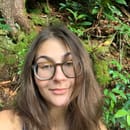The Undergraduate Research Opportunity Program, better known as UROP, is a way for undergraduate students to expand their research abilities and contribute to a unique, developing field of study. Every year, FSU provides undergraduates with the support and funding to embark on a project alongside other eager students and mentors. The possible research opportunities are endless and include studies that focus on fine arts, humanities, sciences, medicine, engineering, business, and social sciences. As part of the program, the annual Undergraduate Research Symposium is held, allowing researchers to share their findings through a creative presentation. The most recent symposium was especially momentous, as it was the first convention to be held at the FSU Student Union with enough space to showcase all presentations simultaneously. One of the many researchers to showcase their work was freshman Willow Hackett. In an interview with Her Campus, Hackett shared more about her experience with the UROP and her research under the mentorship of Professor Annika A. Culver.
Her Campus (HC): Why did you decide to apply to UROP?
Willow Hackett (WH): I decided to apply because I wanted to learn how to research and become experienced before going to grad school. I knew it would be good for my resume, help me network, and build connections.
HC: Could you explain what your research was about?
WH: Our professor did a living person study on the descendants of the last shogun of Japan. I was interested in the royal family lineage and became drawn to it. They didn’t have any art history projects I could do but since I’m minoring in Asian studies, I thought it would be a good learning experience.
HC: How did you go about researching your topic?
WH: I would meet every two weeks with my professor over Zoom and she would assign us topics to research. I went about going through the FSU library and archives to find information. A lot of my research was based on demographics. I mainly focused on the demographics of Japanese immigrants before, during, and after WWII. I spent a lot of time looking at statistics online and finding old photos. My research was mostly based in California so I would have to go through California’s historical records. I even had to contact the National Archives to request a national case file to be released to us.
My research was focused on the grandparents of the girl we were researching. They came to the U.S., and it was interesting because there was no information on her grandfather. We found catalogs with information on where people were interned during WWII, where they were born, and what jobs they had, but there was nothing for him. It was hard to find background on his life. We just got a grant about a month ago for Ancestry, so we can look at records there now. There are a lot of useful records on there.
HC: So, what do you do when you come across a blank like that and there is no information available?
WH: Honestly, there’s nothing much we can do. We tried all we could to find stuff about him, but when we get to a blank like that, we need to request information. It can be frustrating, but I think that just comes with historical research. Some things take a long time to become available. My professor has mentioned that in the past, a lot of files she’s been looking for are undisclosed by the Japanese government. It’s hard when you’re working with two different countries and royal lines.
HC: What was the preparation for the symposium like?
WH: We made a poster and submitted it for approval from our mentors and the head of the program. We mostly used PowerPoint and Google Slides to print out and use for our posters. We practiced in class our elevator speeches, which are just introducing yourself, your major, what year of school you’re in, and your research. I gave a brief overview of my topic, abstract, and findings.
HC: How did it feel to finally voice your experience and research to an audience?
WH: It was cool because it made me realize how much work I had actually done. I think that my research and my schoolwork started to mesh, so I realized how much I learned and the experience I had gained. During the symposium, people asked questions and it was interesting to see how much I still didn’t know. It makes you curious and makes you want to research it even more.
HC: What are your key takeaways after this experience? How will you apply them to your future work?
WH: I think my key takeaway is to not be afraid. Research is such a loaded word, and it seems so academic, but I feel like anyone can do research and can do it for any topic. It’s not just for STEM majors. It’s not just sitting in a lab — there’s a lot more to it. It also helped me realize what I want to do. If you don’t like research, then that’s something to think about. But if you do, then that’s good to know. And I do like it. It can be a lot of work but when you’re passionate about it, at the end of the day, you want to do it.
I definitely want to apply what I’ve learned to the honors program, grad school, and even to my classes. Knowing how to research for papers is very helpful and utilizing library resources is so important.
If you are interested in seeing Hackett’s UROP presentation and learning about her research, be sure to check it out here. Or, if you are an incoming or current first-year student looking to apply to UROP, read more about it here.
Want to see more HCFSU? Be sure to like us on Facebook and follow us on Instagram, Twitter, TikTok, YouTube, and Pinterest!


